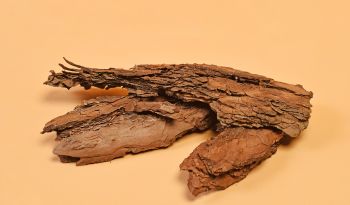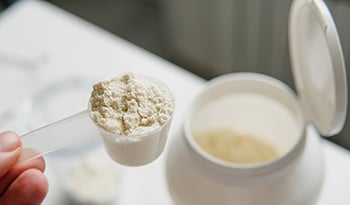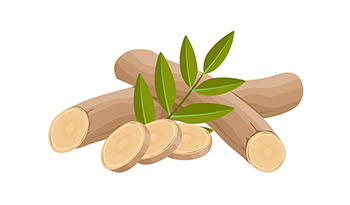Natural Ways to Increase Testosterone: Supplements, Diet, Sleep

Healthy testosterone levels are a critical component of optimal health for men. Testosterone plays a significant role in various aspects of health, from promoting increased muscle mass and bone density to improving mood and energy levels. Testosterone is produced primarily in the testes and naturally peaks during adolescence and early adulthood, gradually declining with age.
Why Is Testosterone Important?
Testosterone is integral to a wide range of bodily functions. Physically, it contributes to muscle mass, strength, and fat distribution. It also supports healthy bone density, which is vital for overall physical health and preventing conditions like osteoporosis.
Testosterone affects mental and emotional health, as well. It influences cognitive functions and mood. Adequate testosterone levels are associated with a positive mood, increased motivation, and a sense of well-being. Conversely, low levels of testosterone can lead to depression, irritability, and cognitive decline.
Libido and sexual performance are also directly linked to testosterone, with low levels often leading to reduced sexual desire and erectile dysfunction. Thus, maintaining balanced testosterone levels is essential for both physical and mental health.
Low Testosterone Symptoms
In recent years, there has been a notable drop in testosterone levels across male populations worldwide. Research indicates that men today have significantly lower testosterone levels compared to previous generations, even when accounting for age. This decline has raised concerns among healthcare professionals and researchers, prompting investigations into potential causes and treatment options.
Low testosterone can impact many areas of a man's life. Symptoms can vary widely but often include fatigue, reduced libido, erectile dysfunction, muscle loss, and mood changes such as depression or irritability.
Understanding these symptoms and their potential impact is the first step toward addressing and managing low testosterone effectively. While aging is a common factor contributing to lower testosterone levels, various other causes exist, including certain medical conditions, lifestyle factors, and genetic predispositions.
Lifestyle Factors
Conventional medication options for treating low testosterone are not always accessible or appropriate for every man. Fortunately, there are a variety of natural options for supporting testosterone levels. These include lifestyle adjustments such as regular resistance exercise, a healthy diet, stress management, and adequate sleep, as well as targeted supplements designed to boost testosterone levels naturally.
Research on natural options for improving testosterone focuses on two groups of men—those with low testosterone and those with healthy testosterone levels. Research findings differ between these two groups, with some treatments showing effects in one group but not the other. It is important to check your individual testosterone levels with a healthcare provider before starting any new herbs or supplements.
Sleep
Adequate sleep is important for maintaining healthy testosterone levels in men. Research shows that insufficient or poor-quality sleep can lead to decreased testosterone production.
During sleep, the body goes through essential processes, including testosterone release. In fact, most of the testosterone in the body is released during sleep. Chronic sleep deprivation or disruptions in sleep patterns can impair this process, resulting in lower testosterone levels.
Prioritizing good sleep hygiene by maintaining a consistent sleep schedule, creating a comfortable sleep environment, and practicing relaxation techniques can help support optimal testosterone production.
Diet
What men eat can impact their testosterone levels. A diet high in processed foods may lead to decreased testicular function, including lower testosterone. A recent study found that men who ate more bread and pastries, desserts, dairy products, and meals outside the home were more likely to have decreased testicular function. Conversely, men who ate more homemade foods and dark green vegetables were more likely to have normal testicular function.
Other research has found that men with a standard Western dietary pattern, including high amounts of processed foods and snacks, had decreased testicular function. In these studies, men who ate more fish, chicken, vegetables, and fruits had better testicular function.
These studies are observational, so they cannot establish a definitive causal link between dietary intake and low testosterone. However, they offer evidence that eating a whole foods diet with plenty of vegetables and lean proteins is associated with better testicular function and testosterone levels.
Vitamins, Minerals, and Essential Fatty Acids
Various nutrients, including vitamins and minerals, have been studied for their effects on testosterone. For some nutrients, benefits are only seen in men with deficiencies, so it is important to have your nutrient levels assessed before starting any new supplements.
Vitamin D
Vitamin D is an important nutrient for various processes in the body, including proper hormone function. Research suggests that adequate levels of vitamin D are associated with higher testosterone levels, while deficiency may contribute to lower testosterone production. Sunlight exposure is a natural source of vitamin D. Still, vitamin D supplements are often recommended—especially for individuals with limited sun exposure or those living in regions with less sunlight.
Research suggests supplementing with vitamin D may increase testosterone levels. One study showed that men who used vitamin D supplements for one year saw improvements in total, free, and bioactive testosterone compared to men supplementing with a placebo.
Boron
Boron is an essential trace mineral that plays various roles in the body. It is involved in the metabolism of minerals, works with vitamin D to support bone health, and influences hormonal balance, particularly by boosting testosterone levels and reducing estrogen levels in men. Research studies have noted improvements in free testosterone in men who supplemented with boron on a daily or weekly basis. The studies were small, but the results are promising.
Fish Oil
Fish oil, rich in omega-3 fatty acids like EPA and DHA, has been shown to positively impact testosterone levels. Omega-3 fatty acids help regulate hormones, including testosterone and may improve overall testicular function. One recent study showed that men supplementing with a DHA-rich fish oil saw improvements in testosterone over the 12 weeks of the study. Fish oil also supports cardiovascular function, enhances mental health, and reduces inflammation.
Magnesium
Magnesium is an essential mineral that plays a vital role in numerous bodily functions, including muscle and nerve function, blood glucose control, and bone health. It also contributes to energy production and has been shown to positively influence testosterone levels. One study examined the effects of magnesium supplementation on the testosterone levels of both athletes and sedentary men. It was found that both groups benefited from supplementation.
Magnesium is available in various forms, each having different effects on the body. Too much magnesium can cause loose stools and digestive discomfort, so starting with a low dose is usually recommended.
Zinc
Zinc is a crucial trace mineral involved in numerous bodily functions, including immune system support, DNA synthesis, and cell division. It plays a key role in maintaining healthy skin, vision, and neurological function. Zinc is particularly important for reproductive health, as it contributes to testosterone production and regulation. Studies have shown that adequate zinc levels can help increase testosterone levels, particularly in men with zinc deficiency.
Herbs and Herbal Extracts
Herbal medicines, including both whole herbs and herbal extracts, have been studied as potential testosterone boosters.
Ashwagandha
Ashwagandha (Withania somnifera) is a popular adaptogenic herb traditionally used in Ayurvedic medicine. Known for its ability to help the body manage stress, ashwagandha has also been shown to improve energy levels, enhance athletic performance, and boost endurance.
Ashwagandha is one of the most widely used botanical testosterone boosters. Recent studies have shown increases in testosterone in men who use ashwagandha daily. Along with its beneficial effects on stress and athletic performance, ashwagandha is a powerhouse for men who want to improve their overall vitality.
Fenugreek
Fenugreek (Trigonella foenum-graecum) is a versatile medicinal herb traditionally used in various cultures and modern herbal medicine. Fenugreek is widely used for its beneficial effects on blood sugar and cholesterol regulation, as well as hormonal health in men and women. This herb both enhances lactation in breastfeeding women and boosts testosterone levels in men.
A recent meta-analysis looking at four clinical trials involving fenugreek showed improvements in total testosterone among men who used the herb compared to those using a placebo. Along with its effects on metabolic health, this herb is a powerhouse for hormonal health.
Tongkat Ali
Tongkat Ali (Eurycoma longifolia) is a medicinal plant native to Southeast Asia. Commonly referred to as "Malaysian ginseng," this herb has been used in traditional medicine for its aphrodisiac and adaptogenic effects.
A recent systematic review and meta-analysis looked at several trials involving this herb and found that tongkat ali use was associated with improved testosterone levels in both healthy men and men with low testosterone. The studies are small, but the results are exciting. Read more about Tongkat Ali here.
Betaine
Betaine, or trimethylglycine (TMG), is a naturally occurring compound found in various plants and animals, including beets. Betaine has been shown to improve cardiovascular function and liver health, along with promoting healthy testosterone levels in athletes. One recent study found that athletes who supplemented with betaine experienced improved athletic performance and increased testosterone concentration.
Tribulus
Tribulus (Tribulus terrestris) is widely promoted as a natural option to boost libido, improve sexual performance, and support hormonal health. Research on Tribulus as a testosterone booster is mixed. While this herb may not improve testosterone directly, some studies suggest it may be effective at improving symptoms related to low testosterone, like low libido and erectile dysfunction.
Pomegranate and Cacao
While many supplements focus on botanical medicines with a history of use as testosterone boosters, some studies are seeking new plants and novel blends. A recent study looking at a proprietary blend containing extracts of pomegranate (Punica granatum) fruit rind and cacao (Theobroma cacao) seeds found that participants using the blend saw improvements in total and free testosterone over the eight weeks of the study.
Safety and Potential Risks
Many of the supplements and herbs mentioned here are widely used and generally considered safe for most men. Still, it’s important to remember that supplements may interact with certain medications or other supplements. Although rare, some individuals may be allergic to certain herbs or supplements, leading to allergic reactions. Always talk to a healthcare provider before using any new herbs or supplements.
Takeaway
Testosterone levels in men worldwide have declined over the past few decades. Studies indicate a significant decrease in testosterone levels in today's men compared to earlier generations, even after considering age-related factors. This decline has sparked concern within healthcare and research circles, prompting investigations into potential underlying causes and possible treatment options. Many natural options for improving testosterone levels exist, but more research is needed to establish which works best.
References:
- Abbott K, Burrows TL, Acharya S, Thota RN, Garg ML. Dietary supplementation with docosahexaenoic acid rich fish oil increases circulating levels of testosterone in overweight and obese men. Prostaglandins Leukot Essent Fatty Acids. 2020 Dec;163:102204.
- Cinar V, Polat Y, Baltaci AK, Mogulkoc R. Effects of magnesium supplementation on testosterone levels of athletes and sedentary subjects at rest and after exhaustion. Biol Trace Elem Res. 2011 Apr;140(1):18-23.
- Hu TY, Chen YC, Lin P, Shih CK, Bai CH, Yuan KC, Lee SY, Chang JS. Testosterone-Associated Dietary Pattern Predicts Low Testosterone Levels and Hypogonadism. Nutrients. 2018 Nov 16;10(11):1786.
- Kamenov Z, Fileva S, Kalinov K, Jannini EA. Evaluation of the efficacy and safety of Tribulus terrestris in male sexual dysfunction-A prospective, randomized, double-blind, placebo-controlled clinical trial. Maturitas. 2017 May;99:20-26.
- Leisegang K, Finelli R, Sikka SC, Panner Selvam MK. Eurycoma longifolia (Jack) Improves Serum Total Testosterone in Men: A Systematic Review and Meta-Analysis of Clinical Trials. Medicina (Kaunas). 2022 Aug 4;58(8):1047.
- Leproult R, Van Cauter E. Effect of 1 week of sleep restriction on testosterone levels in young healthy men. JAMA. 2011 Jun 1;305(21):2173-4.
- Lopresti AL, Drummond PD, Smith SJ. A Randomized, Double-Blind, Placebo-Controlled, Crossover Study Examining the Hormonal and Vitality Effects of Ashwagandha ( Withania somnifera) in Aging, Overweight Males. Am J Mens Health. 2019 Mar-Apr;13(2):1557988319835985.
- Mansoori A, Hosseini S, Zilaee M, Hormoznejad R, Fathi M. Effect of fenugreek extract supplement on testosterone levels in male: A meta-analysis of clinical trials. Phytother Res. 2020 Jul;34(7):1550-1555.
- Naghii MR, Mofid M, Asgari AR, Hedayati M, Daneshpour MS. Comparative effects of daily and weekly boron supplementation on plasma steroid hormones and proinflammatory cytokines. J Trace Elem Med Biol. 2011 Jan;25(1):54-8.
- Pilz S, Frisch S, Koertke H, Kuhn J, Dreier J, Obermayer-Pietsch B, Wehr E, Zittermann A. Effect of vitamin D supplementation on testosterone levels in men. Horm Metab Res. 2011 Mar;43(3):223-5.
- Santos HO, Teixeira FJ. Use of medicinal doses of zinc as a safe and efficient coadjutant in the treatment of male hypogonadism. Aging Male. 2020 Dec;23(5):669-678.
- Sreeramaneni PGA, Yalamanchi A, Konda MR, Cherukuri SHV, Maroon JC. A Proprietary Herbal Blend Containing Extracts of Punica granatum Fruit Rind and Theobroma cocoa Seeds Increases Serum Testosterone Level in Healthy Young Males: A Randomized, Double-Blind Placebo-Controlled Study. J Diet Suppl. 2023;20(3):411-427.
- Zawieja E, Durkalec-Michalski K, Sadowski M, Główka N, Chmurzynska A. Betaine supplementation improves CrossFit performance and increases testosterone levels, but has no influence on Wingate power: randomized crossover trial. J Int Soc Sports Nutr. 2023 Dec;20(1):2231411.
DISCLAIMER:This Wellness Hub does not intend to provide diagnosis...
















































































 Table of Contents
Table of Contents












